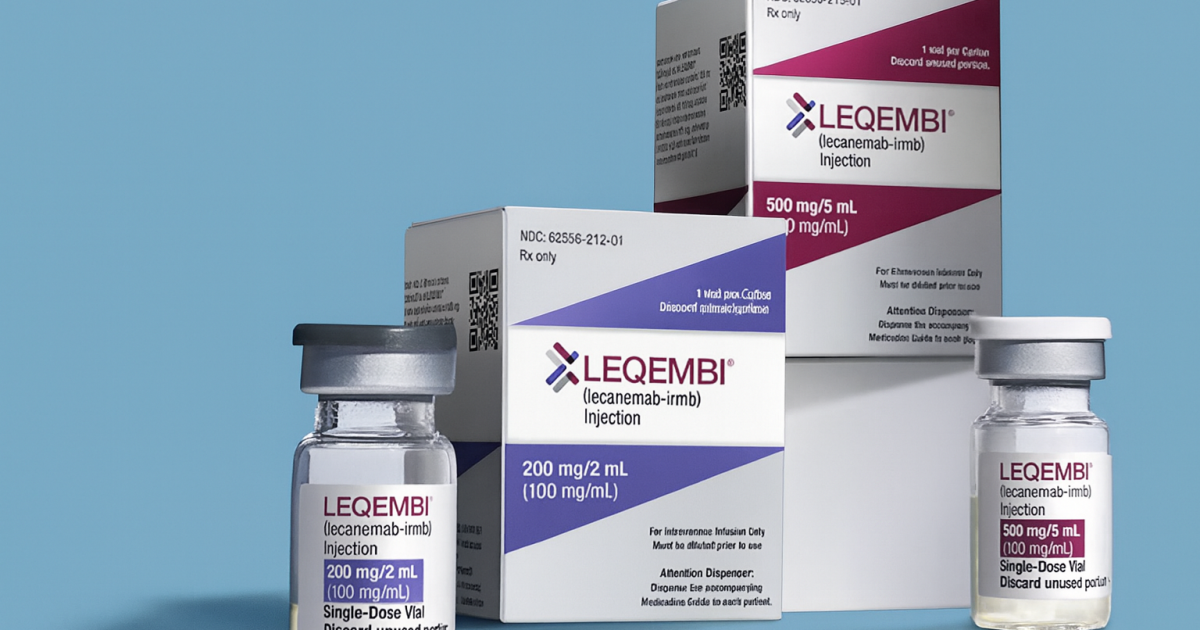The US Food and Drug Administration (FDA) has approved a new version of an Alzheimer’s disease drug that can be given as a quick at-home weekly injection, offering patients a far more convenient option than lengthy infusion-center visits. It will be widely available from October 6, 2025.
Leqembi (lecanemab-irmb) was first approved in 2023 as an intravenous (IV) infusion for patients with early Alzheimer’s disease (AD), following study data showing that it could slow cognitive decline and help clear amyloid plaques. But the treatment is challenging and time-consuming. Following extensive trials, brain scans of participants showed that new shot version cleared sticky amyloid deposits even more effectively than the IV version, and came with far fewer incidence of “whole-body” reactions, making it safer and easier to tolerate.
The newly approved subcutaneous shot, Leqembi Iqlik, will be delivered through an autoinjector, taking about 15 seconds to administer once a week at home. There is one catch, though – patients will still need to have completed an initial 18-month course of IV therapy.
“Leqembi Iqlik is the first and only anti-amyloid treatment to offer an at-home injection to help patients and care partners continue to treat this progressive, relentless disease after initial treatment of 18 months,” a spokesperson for the drugmaker Biogen wrote in a statement.
In the Clarity AD study, intravenous lecanemab reduced cognitive decline by 27% at 18 months, preserving memory and daily skills for several extra months compared to those on placebo. And those who stuck with the treatment for up to four years lost abilities at a slower rate – so people were still able to, for example, handle everyday tasks like cooking or managing money versus needing help from a caregiver.
But lecanemab doesn’t just treat symptoms – it directly targets amyloid, the sticky protein that accumulates in the brains of Alzheimer’s patients. PET imaging collected during the subcutaneous-drug trial showed that weekly injections actually produced 14% more plaque clearance after six months compared to the IV treatment. This suggests the new formulation may be at least as effective biologically as the infusions, while offering greater convenience and tolerability.
Around a quarter of IV patients experience adverse effects such as chills, fever or nausea. By contrast, fewer than 1% of patients on the weekly injection experienced these reactions. The most common issues with the shot were mild-to-moderate local reactions such as redness or swelling at the injection site, affecting about 11% of trial participants.
The serious safety concern with all anti-amyloid drugs remains the risk of amyloid-related imaging abnormalities (ARIA), which can involve brain swelling or bleeding. Rates of ARIA appear similar between the IV and subcutaneous forms, meaning careful monitoring with MRI scans will remain standard practice with the new form of Leqembi.
AD affects more than six million people in the US alone, and until recently, treatments only managed symptoms without addressing the underlying biology of the disease. Leqembi was the first therapy shown to actually slow disease progression, but uptake has been limited by the practical challenges of IV infusion. The approval of a self-administered version now removes one of the biggest barriers, even if the initial IV treatment is still required.
“From the perspective of patients and care partners, benefits included the ability to use the device at home, shortening treatment time and to continue treatment without having to worry about visiting an infusion center,” said Biogen. “Healthcare providers reported that the device has the potential to provide a new option for patients who are responding well to Leqembi and should continue treatment.”
For families navigating early AD, Leqembi Iqlik means fewer clinic visits, reduced healthcare costs and the possibility of managing treatment entirely at home. It also stands to relieve pressure on infusion centers and medical staff, while broadening eligibility to patients in rural areas and regions without easy access to IV clinics.
Source: Biogen







